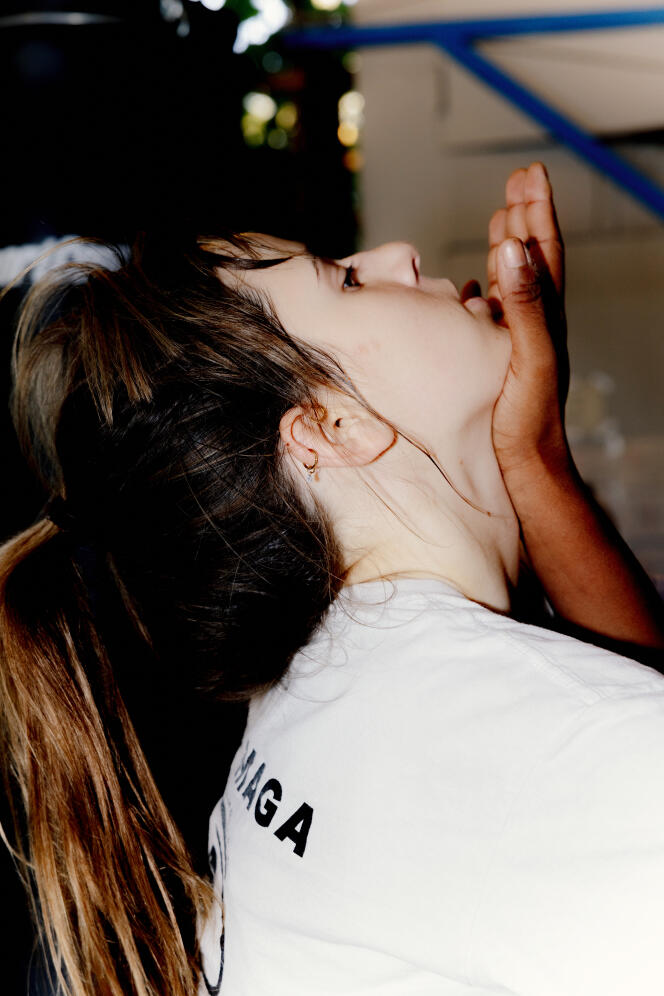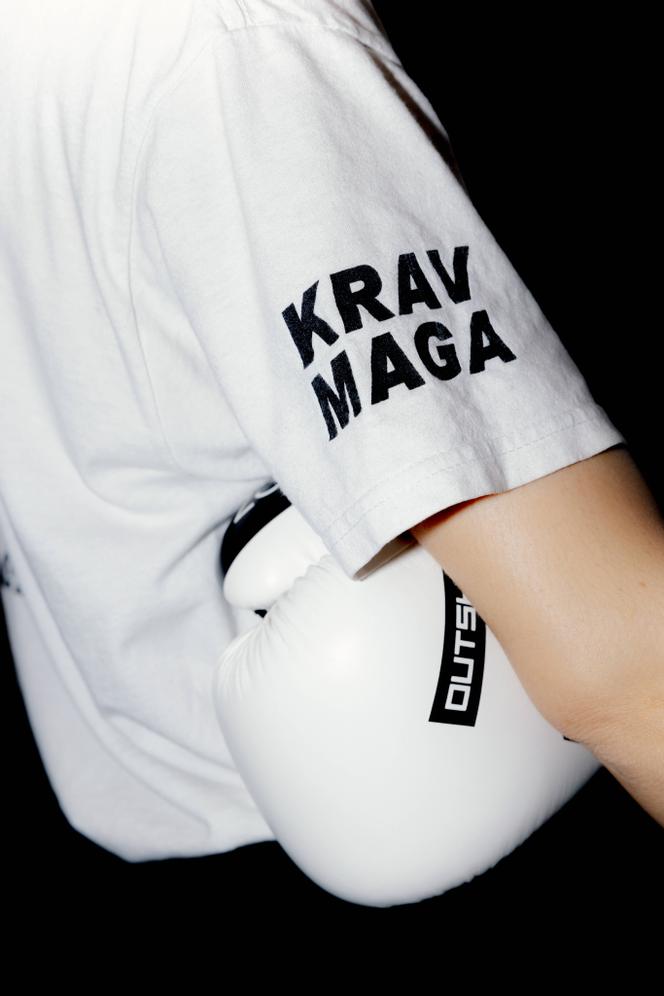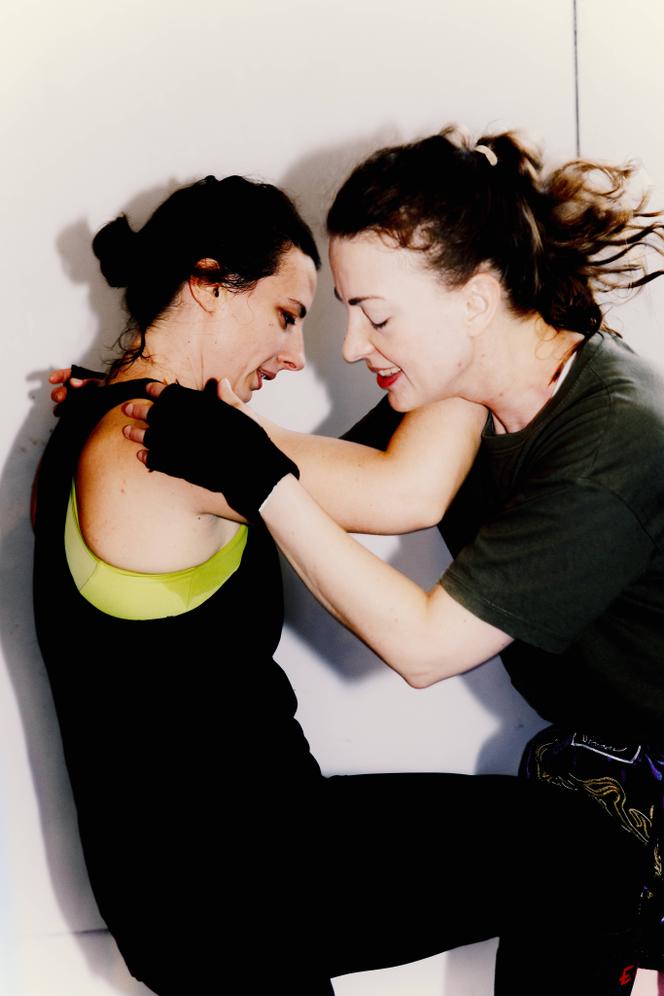


"In the middle of the day, not far from [Parisian business district] La Défense, several men surrounded me in the street. They insisted on talking to me, despite my repeated 'no', holding my arm, reaching out to touch my hair. When I tried to leave, they followed me. There was no physical aggression to speak of, and I eventually managed to take refuge in a shopping mall, but that incident made me aware of my vulnerability." Séverine is now 38, and this memory from more than 10 years ago is part of the reason she joined a women's self-defense class.
"Get your knees up, heels and buttocks!" she orders, dressed in combat gear, from the middle of a room at the Jean-Talbot sports center in Paris's Latin Quarter. The Women's Fight Back class, run by a training centre for Krav Maga – an Israeli self-defense art whose name means "contact combat" in Hebrew – had just begun. Séverine, now a 3rd Darga black belt, is no longer a student, but an instructor with the European Krav Maga Federation.
Behind her was a boxing ring, surrounded by around 20 women whose foreheads were beaded with sweat. It was 10 o'clock on an autumn Saturday morning and they were all there for the same reason: to learn how to defend themselves. The instructor had cranked up the music to motivate the women and warmed them up with squats, burpees and push-ups. Sweat-soaked handprints spread across the shiny floor, the smell of new plastic meeting that of perspiration, jerky breaths oscillating between exhaustion and excitement.
"The kick, do it harder, don't be afraid to hurt me!" Wearing chest and groin protectors, Lisa (not her real name) waited for the next attack. She is a smiling woman in her late thirties, her boxing gloves pumping up and down, her cheeks flushed from the intensity of the exercise.
She started these classes year ago, due to her daily Parisian life being full of "microaggressions". While the self-defense course is not a form of therapy, and we didn't dwell on the women's reasons for coming, the answers to this were all the same. "The metro" was one of the most frequent answers in response to the question "what are you doing here?" In this volatile public space, women are exposed to close encounters on a huge scale, including "wandering hands, jewelry and bag thefts, people under the effect of drugs or alcohol," as Lisa reeled off.


The feeling of being prey after nightfall in public places, and the realization of their vulnerability up against men, including in private settings, were the other reasons that came up most often among the participants. Lisa had a long list: "My former partner used to drink. When it got too much, I'd tell him he had to go home and I'd put him in a cab. He hated it. I knew at some point I was going to get hit. And, eventually, it seemed almost normal to me, because I'd been brought up like that, with a father who didn't handle negative emotions well and who slapped me around for a long time, or banged on the wall next to my head when I didn't listen to him."
You have 75% of this article left to read. The rest is for subscribers only.
